
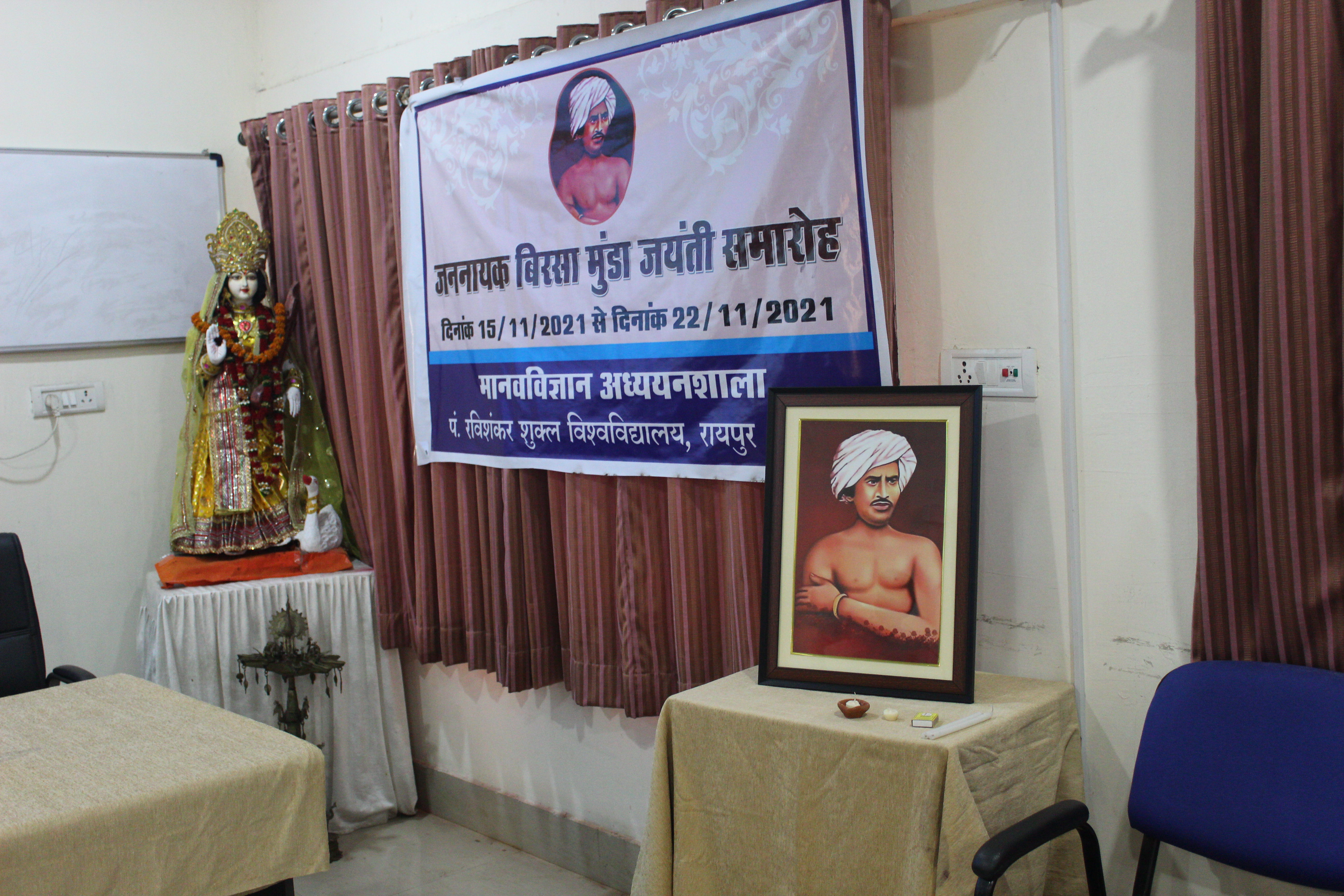

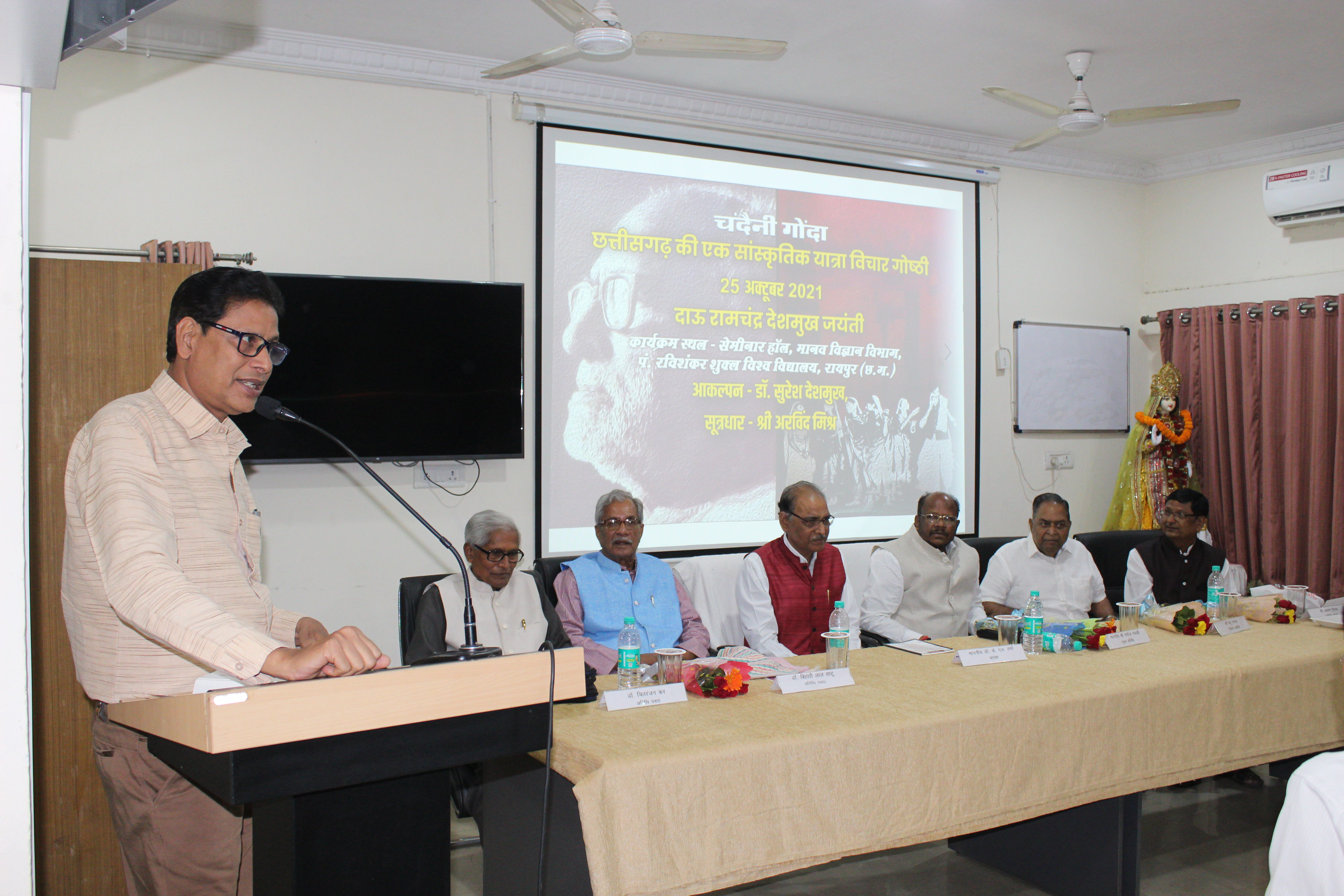
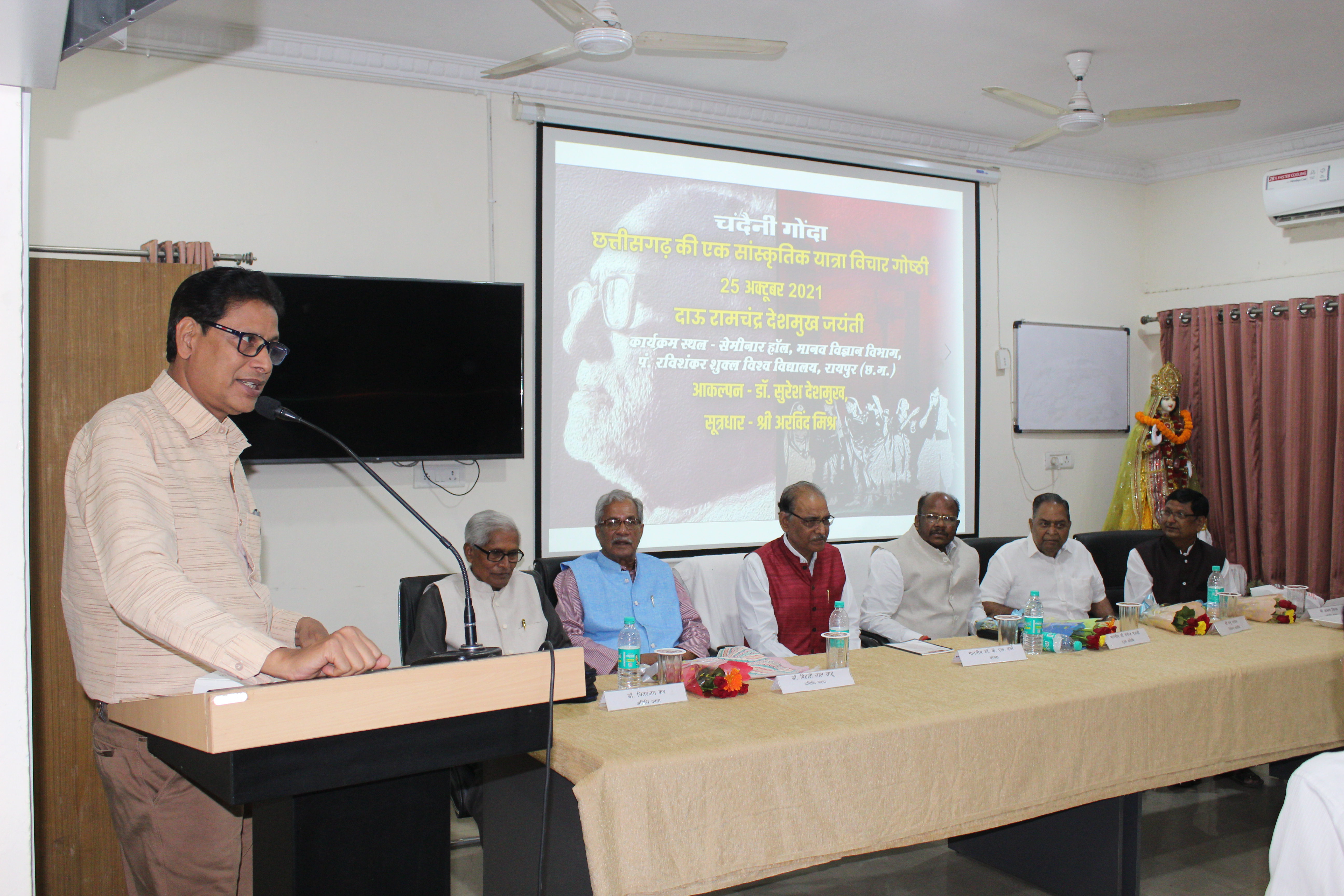
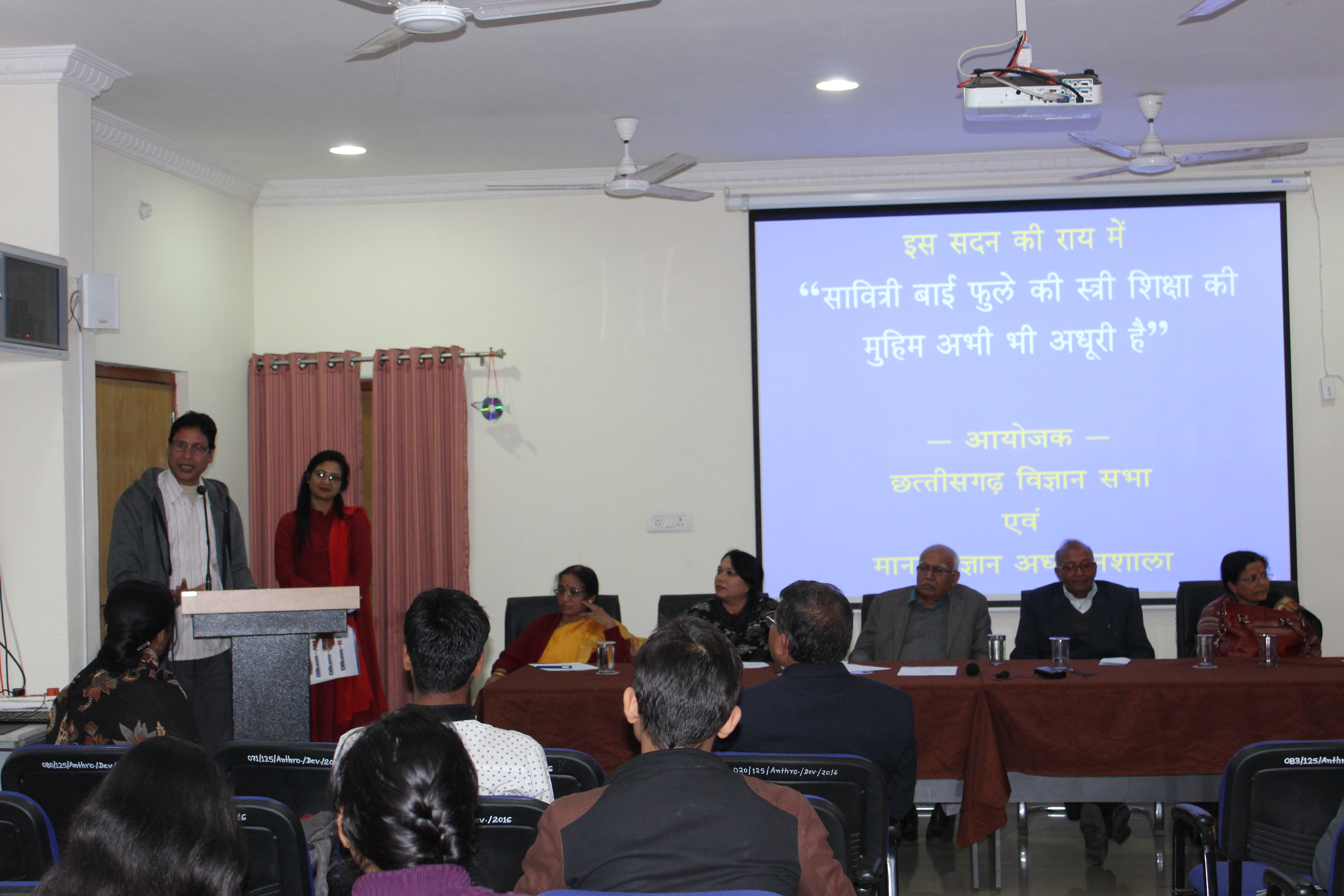
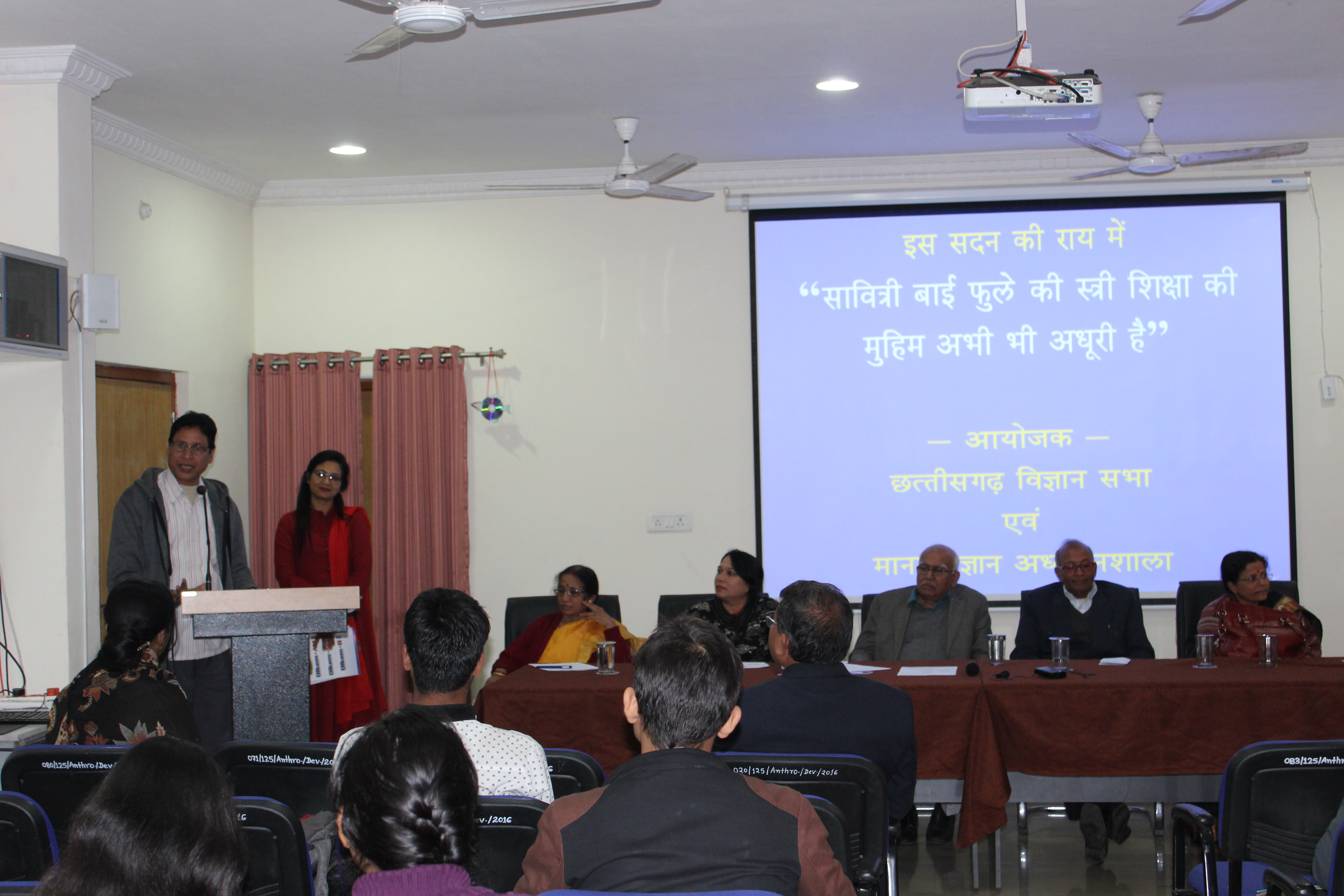
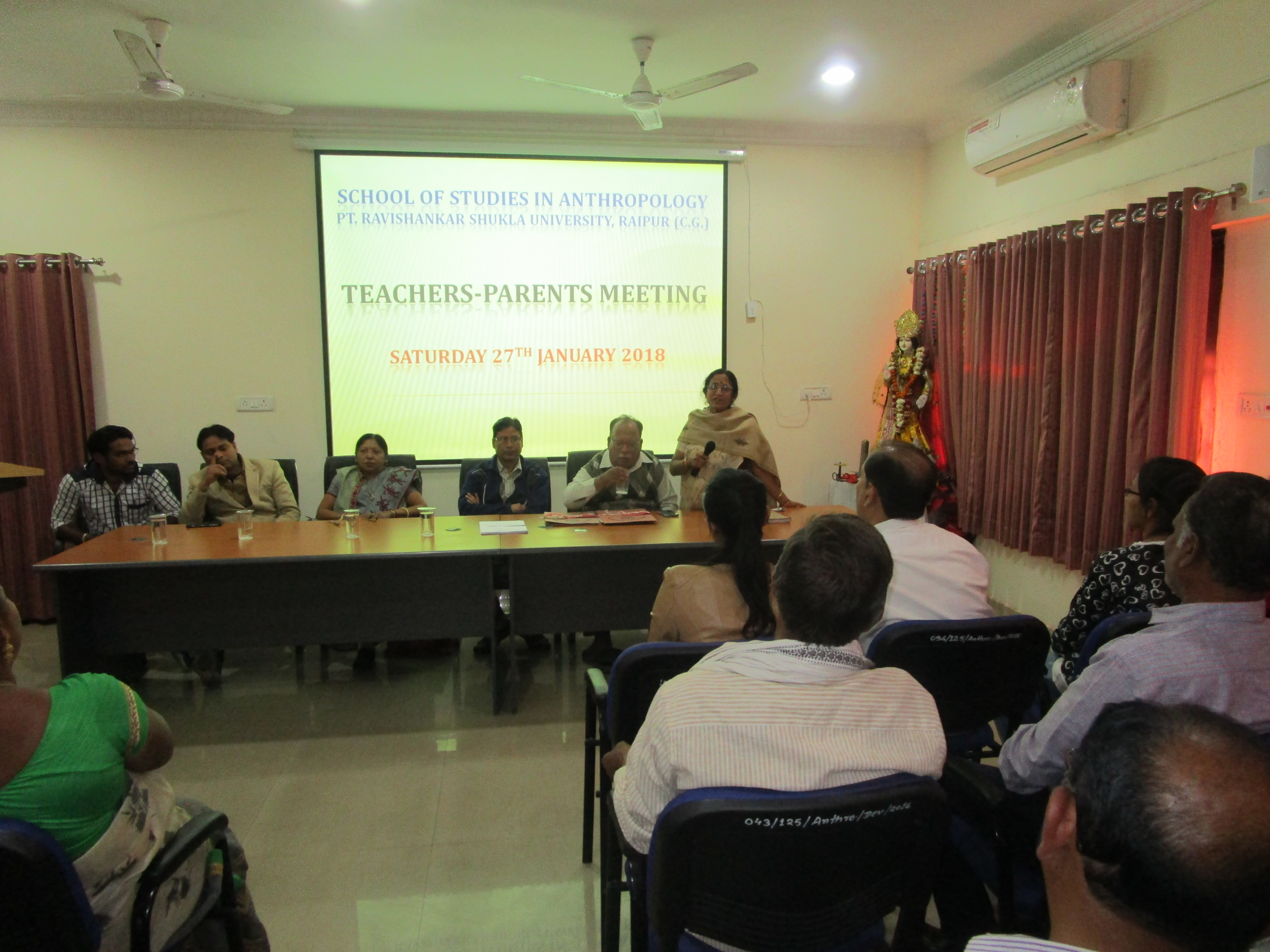



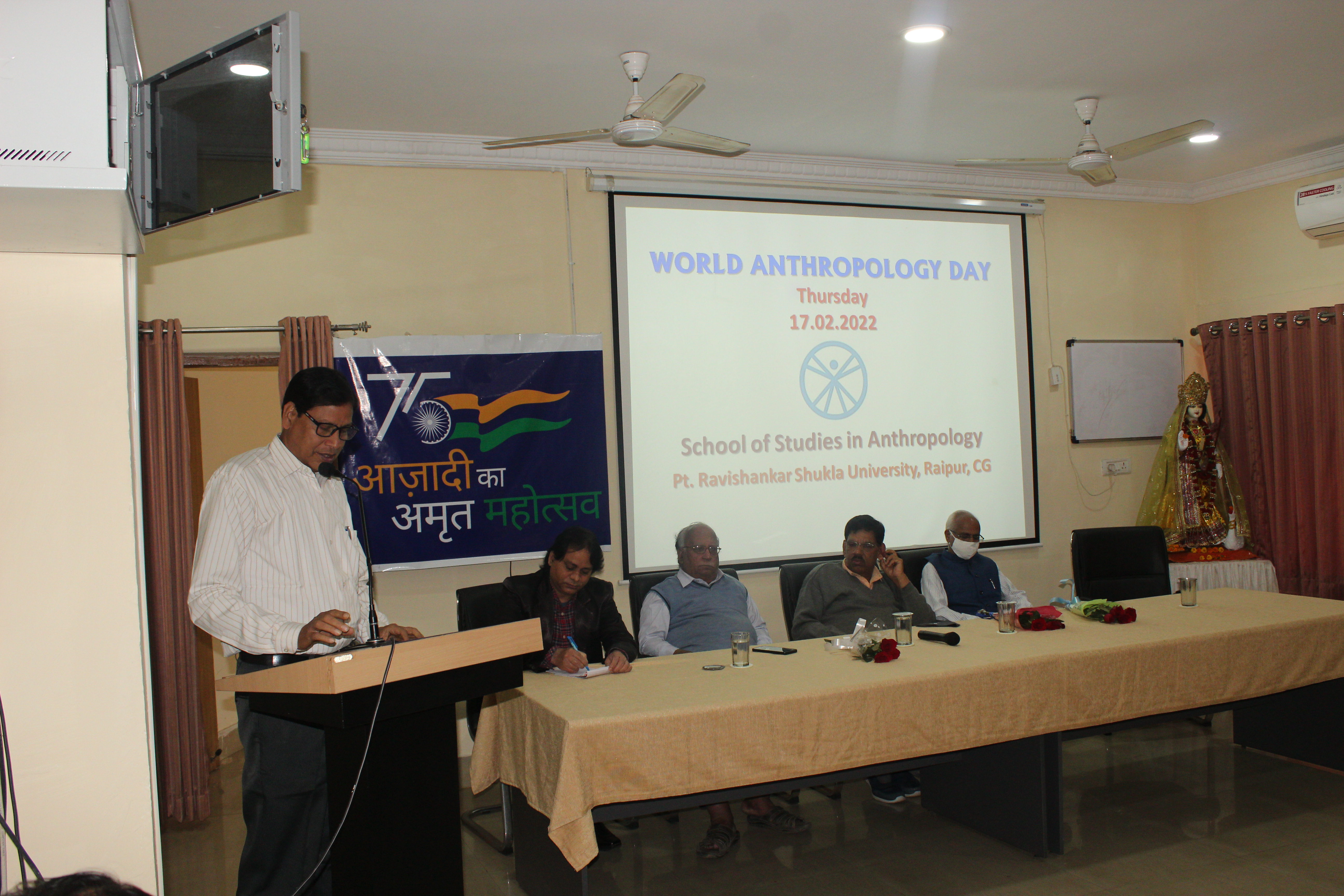


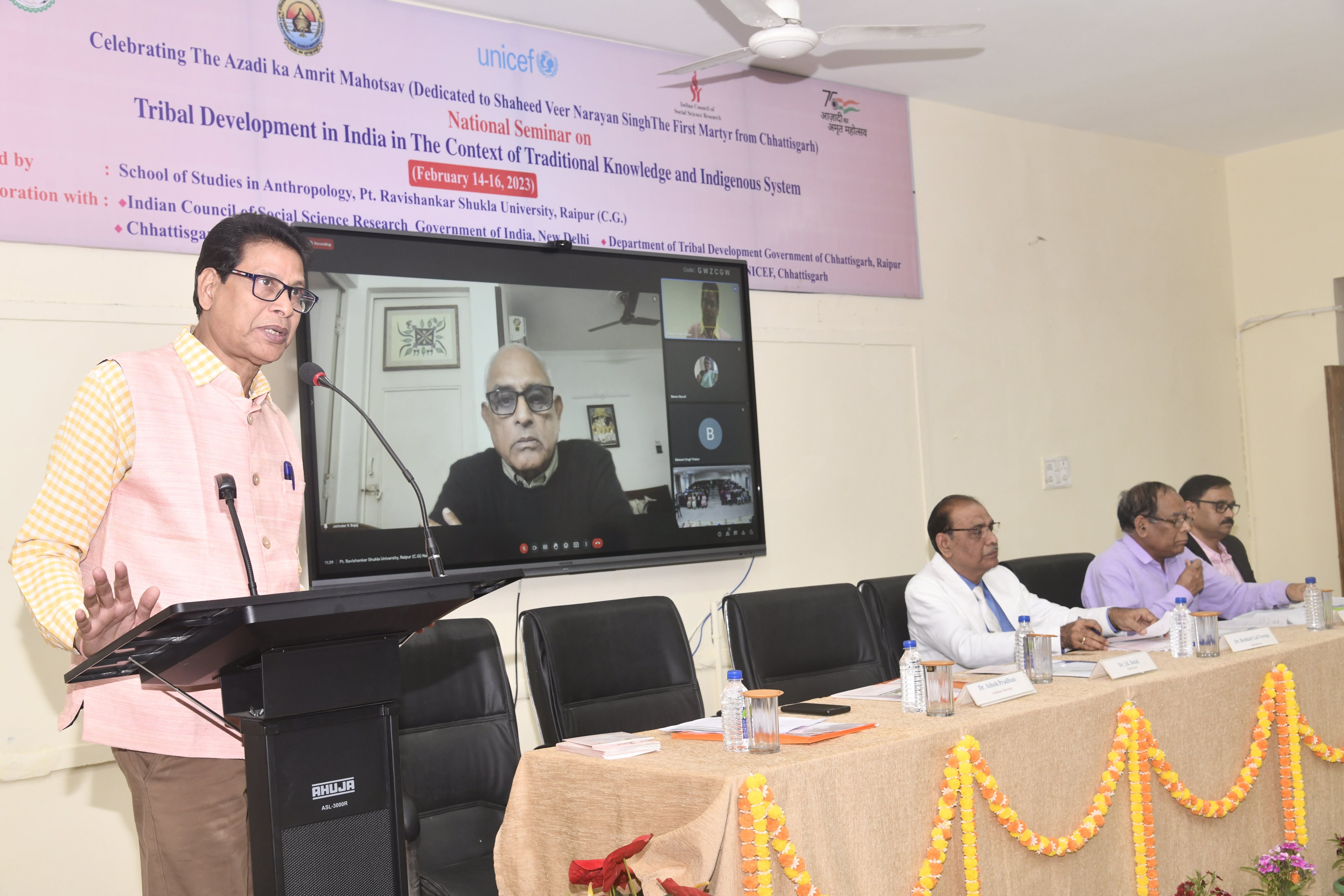
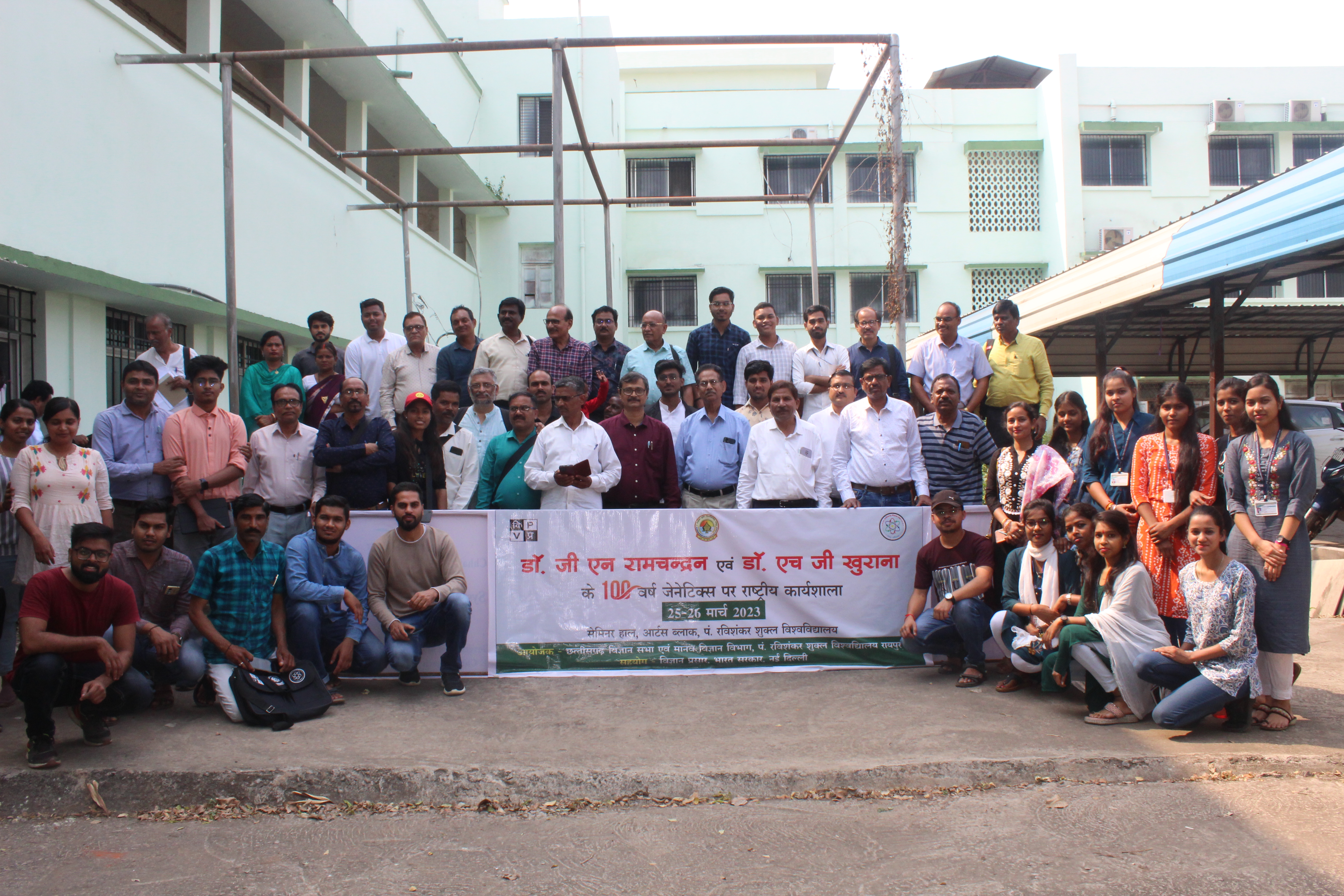

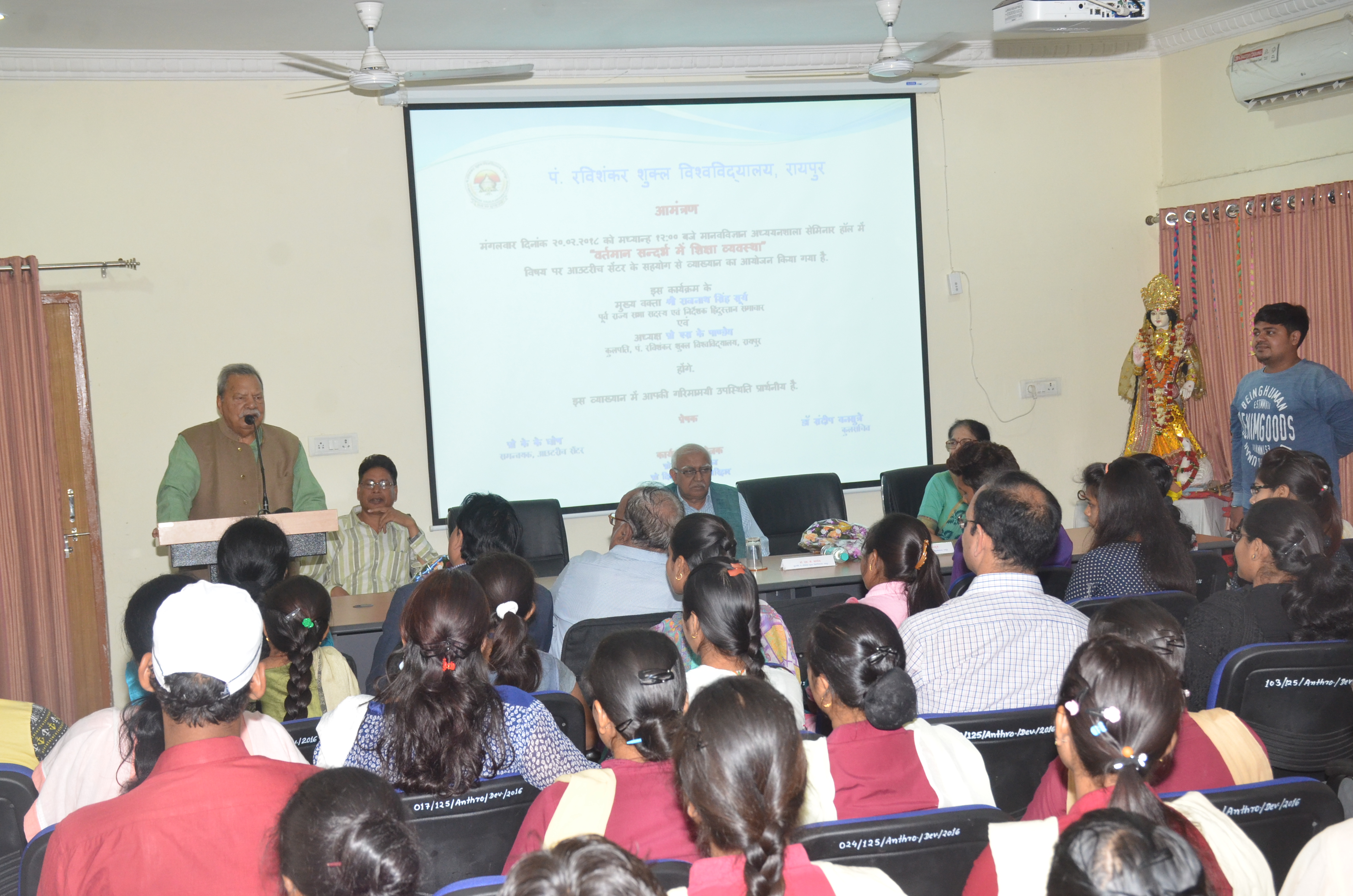
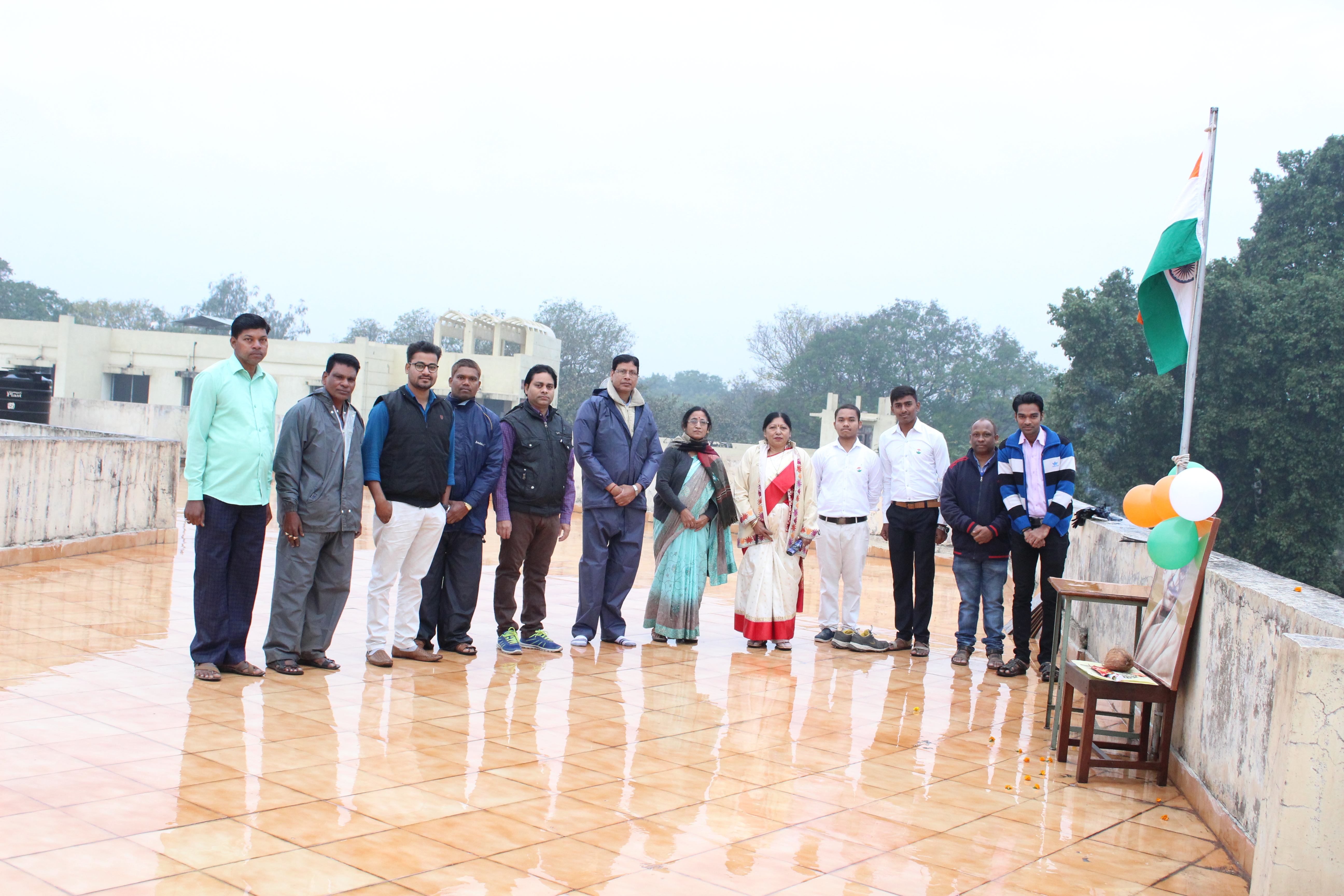
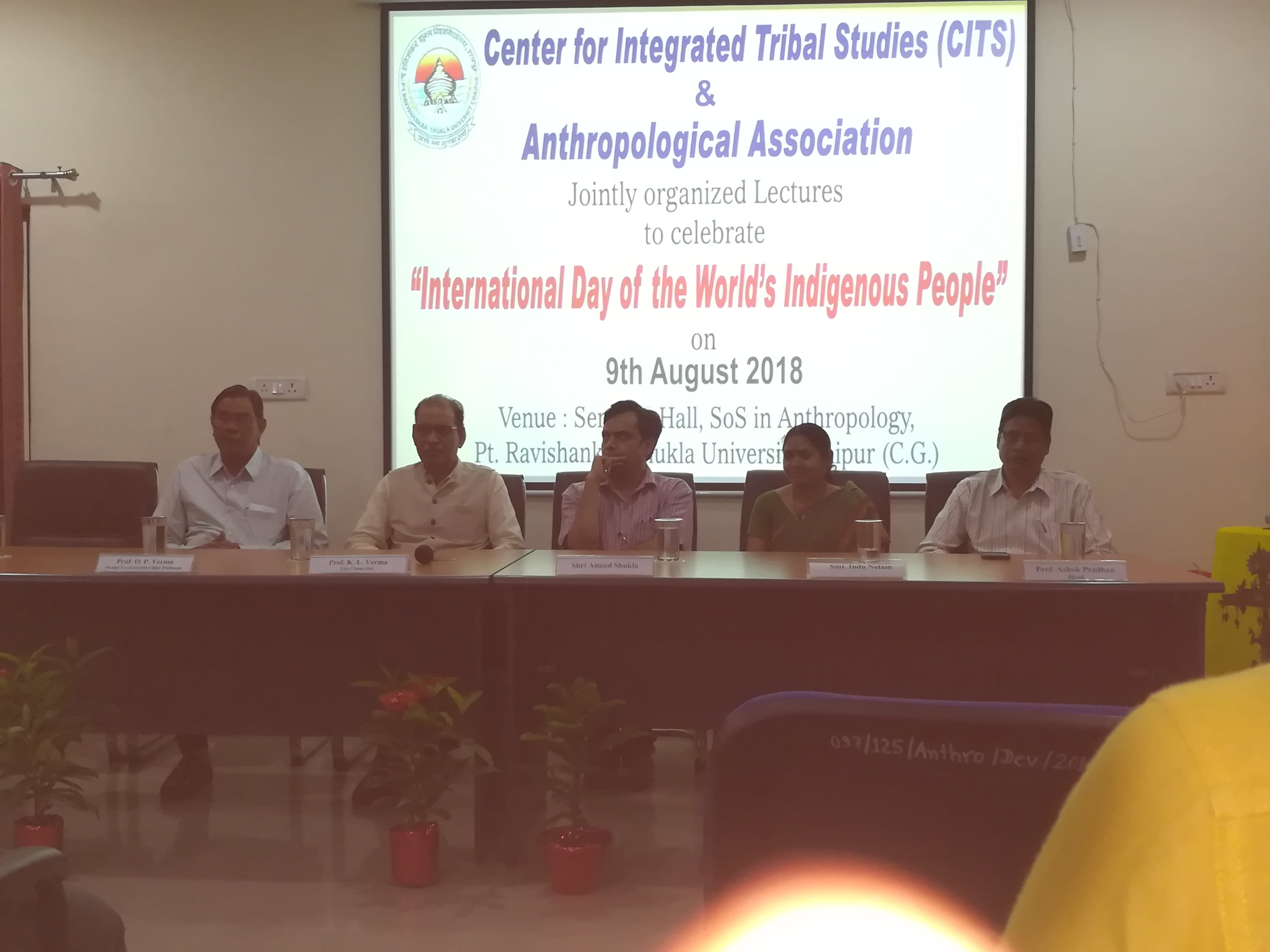


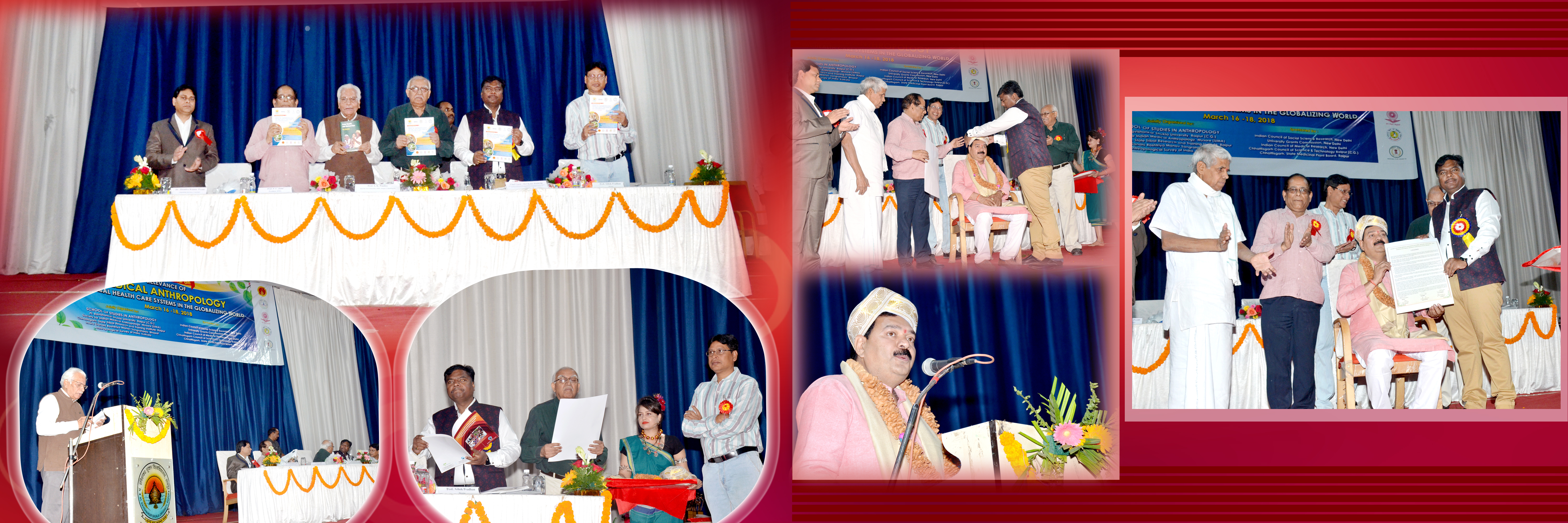
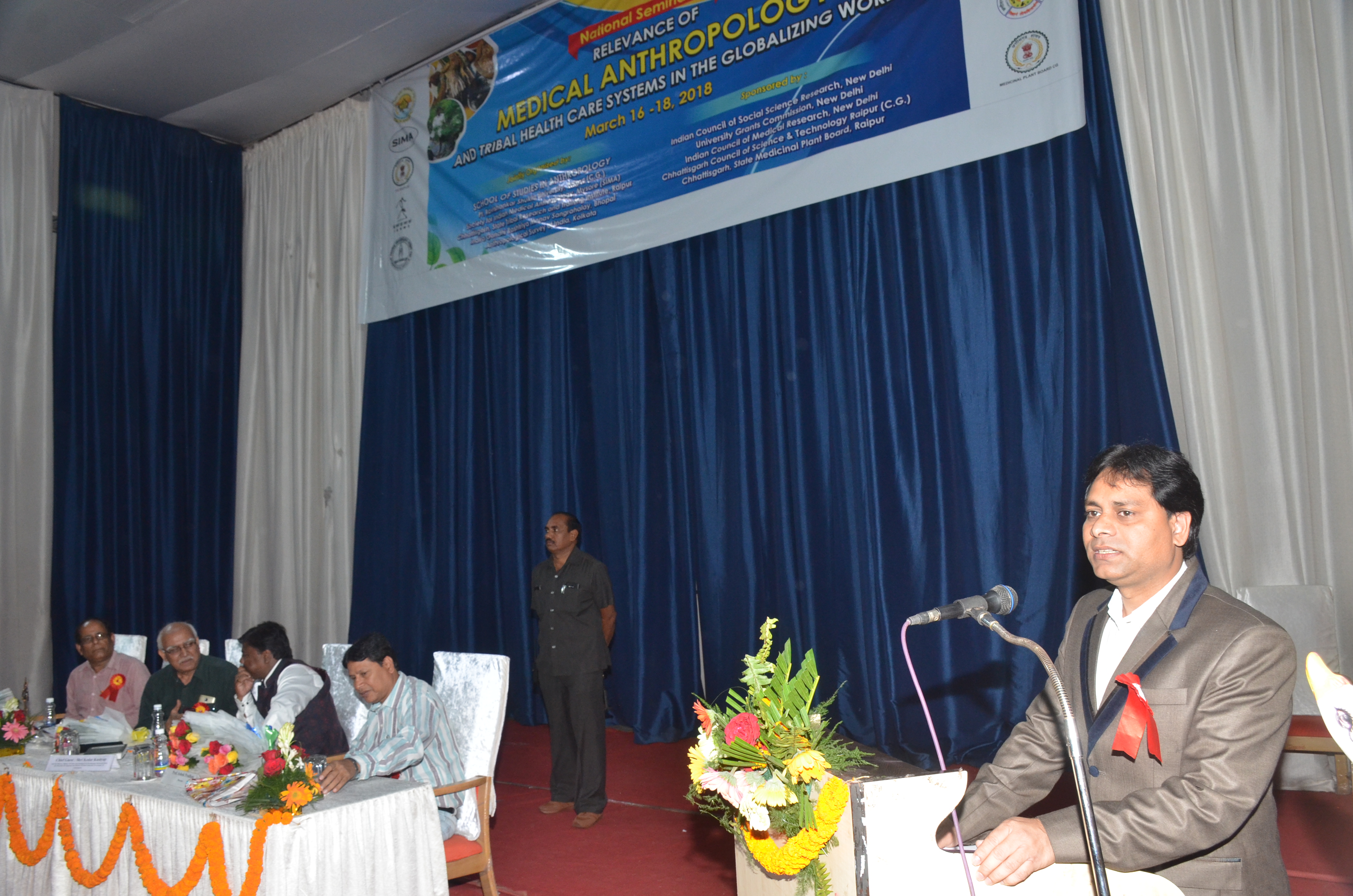
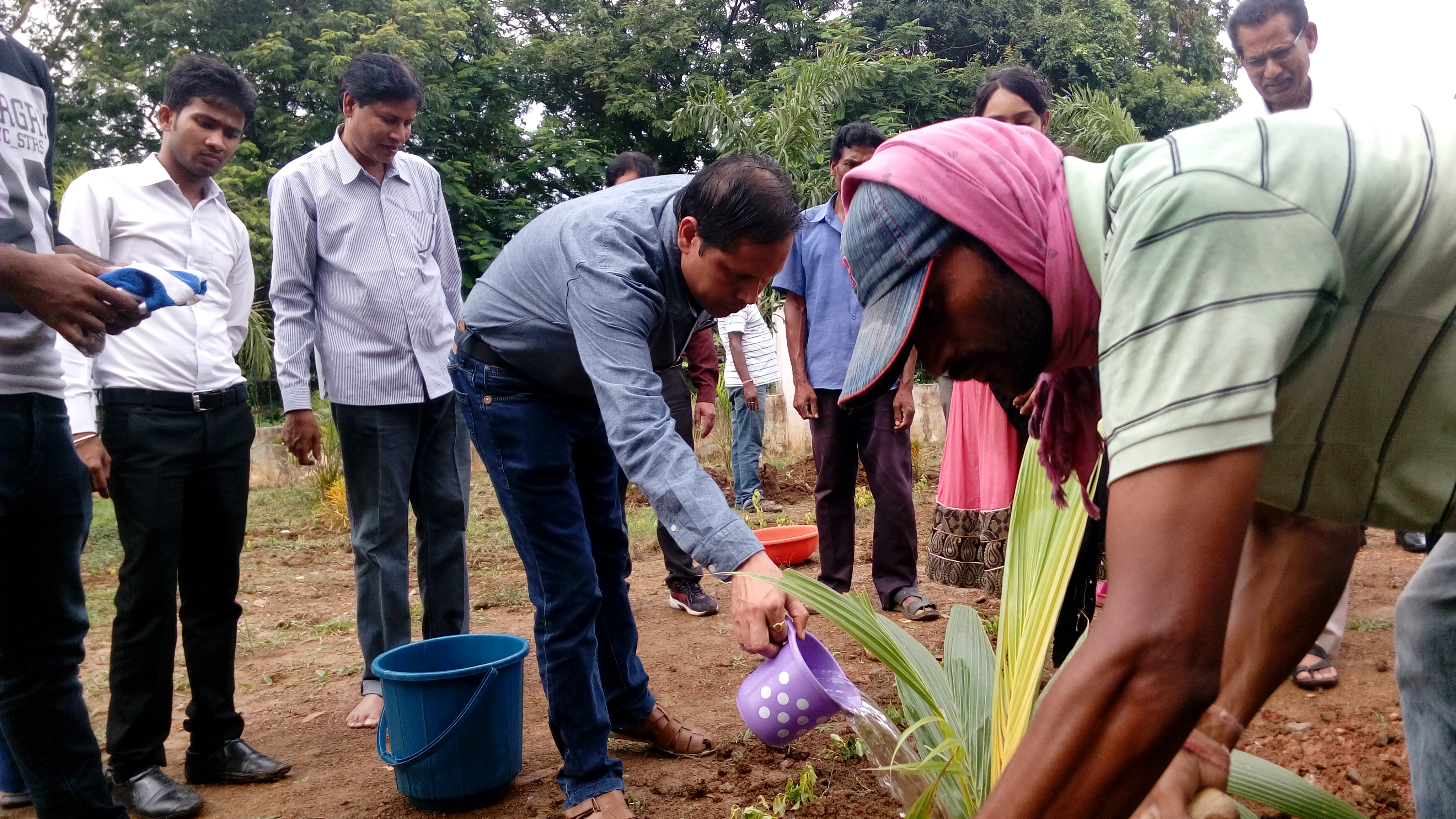
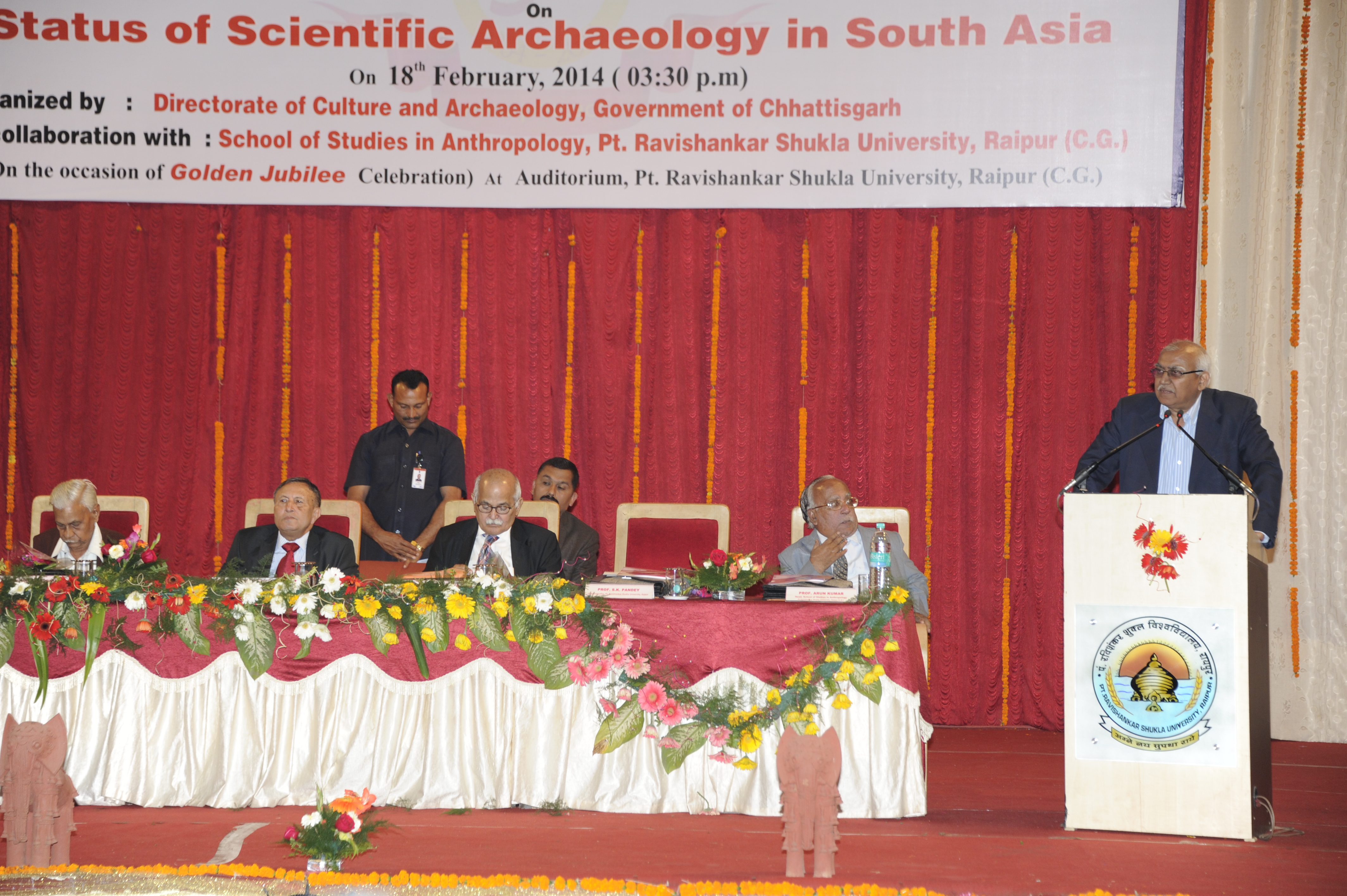
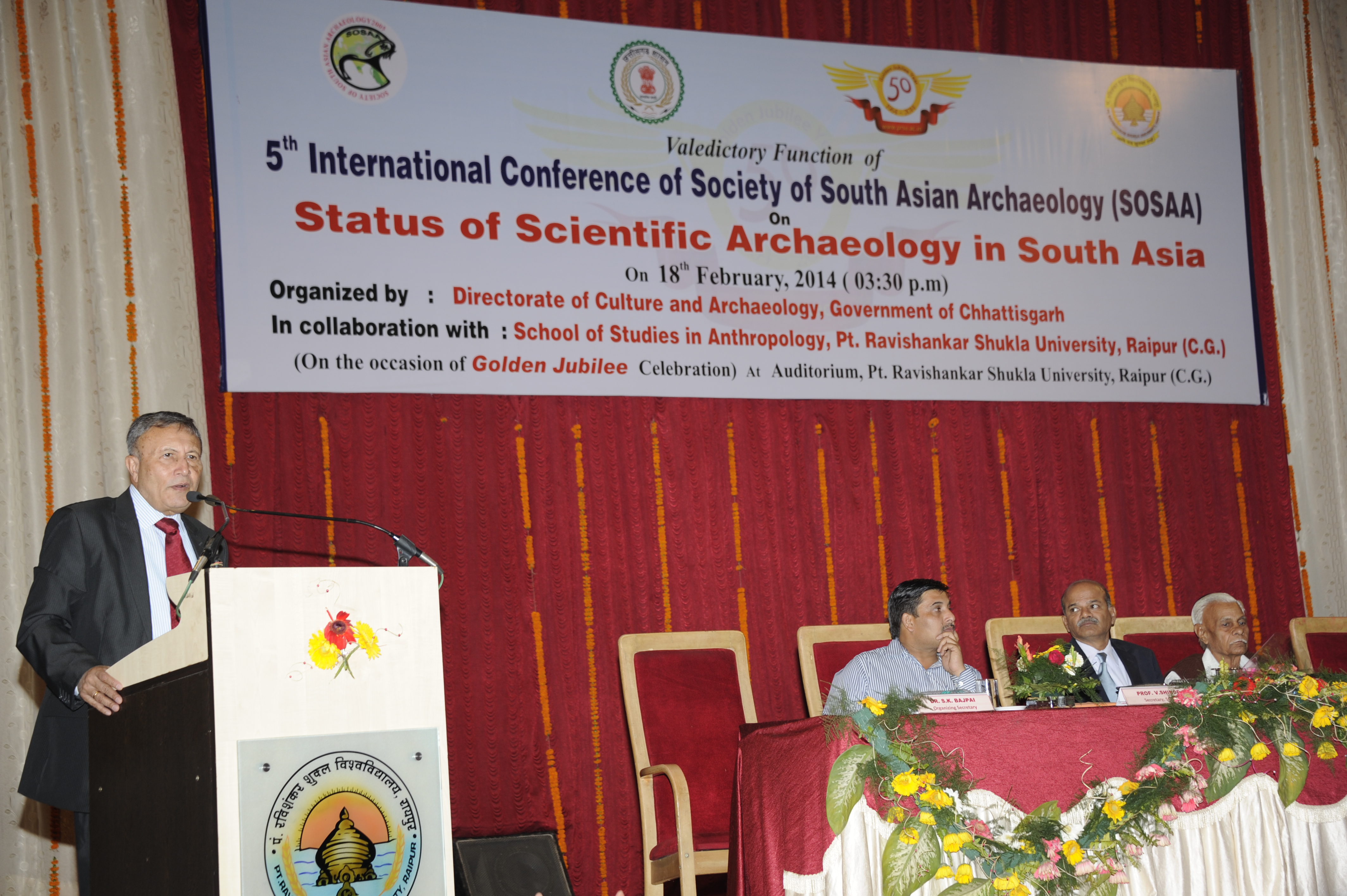
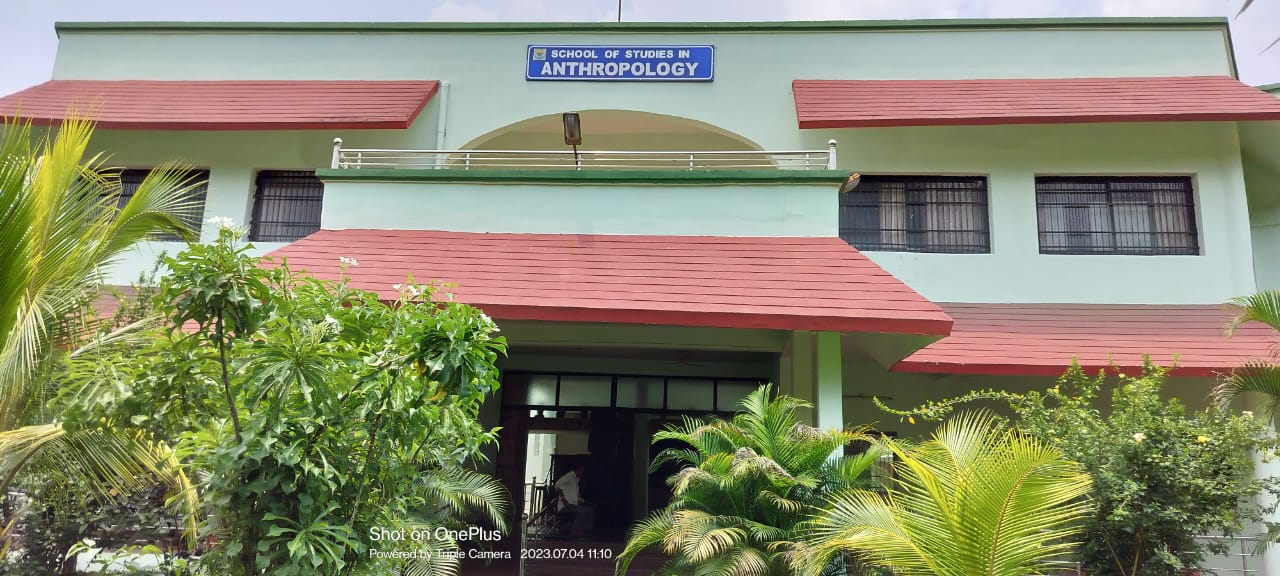
पं. रविशंकर शुक्ल विश्वविद्यालय, रायपुर, छत्तीसगढ़, भारत
Pt. Ravishankar Shukla University, Raipur Chhattisgarh, India
NAAC Grade B++ Ranking by NIRF DST-PURSE Funded University




























Year of Establishment: 1965
Nationally Recognised under:
?
UGC-SAP(DRS-I) (F.5-46/2007(SAP-III))
?
DST-FIST Programme (SR/FIST/LSI-588/2014
dt. 21.11.2014)
The School of Studies in Anthropology focuses
on understanding humans (as a biological and a cultural being) and human behavior
through cross-culture perspective. Anthropologists study the diversity of
humankind as manifest through time and space. Anthropology is a discipline that
uniquely bridges the social, natural and life sciences. Thus, the scope of
anthropology is vast and varied.
The School under Faculty of Life Science
offers:
?
Postgraduate degree (M.A./M.Sc. in
Anthropology)
?
M.Phil. in Anthropology
?
Research degree (Ph.D.) in Anthropology
?
P.G. Diploma in Criminology and Forensic Science
School of Studies in Anthropology prides
itself on providing a vital learning milieu for students, enriched by an active
research environment, teaching & supervisory styles, encourage the pursuit
of ideas and the satisfaction that comes from applying knowledge. The
department boasts a variety of special resources for students.
The Anthropological Museum , state-of-art
Laboratories (Anthropometry Lab, Serology Lab, Human Genomics Lab, Archaeology
Lab, Museuology Lab, Forensic Lab), Departmental Library, Computer Lab
and Internet facilities and Fieldwork training supported by modern
teaching aids are being developed as major resources for teaching and research.
Anthropology is divided traditionally into
three major sub-fields, each of which contribute distinct perspectives on the
issues of what makes us human:
?
Biological/Physical Anthropology addresses
the physical dimensions of humans namely human variation, human
origin and evolution, human growth and
nutrition, human ecology & human genetics.
?
Social-Cultural Anthropology investigates
contemporary human cultures and the diversity of human social institutions with
focus on tribal communities.
?
Archaeology concerns with human cultures of
the past.
The range of research interests of the faculty includes
Biological (Genomic diversity, Dissection of complex genetic disorders, Human
Genetics, Population Genetics, Molecular Genetics, Medical Biotechnology,
Genetic Epidemiology, Forensic Biology, Demogenetics, Human Growth &
Nutrition), Socio-Cultural (Ethnography, Medical Anthropology, Population
Studies, Reproductive Health, Tribal Development, Policy Research) and
Archaeological areas (Ethno-archaeology, Geo-archaeology). Together, these
branches of study teach us about modern human biological and cultural
diversity, as well as our evolutionary origins, thereby enhancing our
understanding of the past, present and future of the human species.
VISION OF UNIVERSITY
?
To make quality higher education accessible
to all sections of society, including the tribal population of Chhattisgarh.
?
To provide quality education in the
disciplines of arts, humanities, social sciences, natural sciences and other
disciplines of learning.
?
To develop human resource with world class
competence and skills in the respective disciplines.
MISSION OF UNIVERSITY
?
To develop the university as a centre of
excellence for higher education and knowledge resource.
?
To promote understanding the value of
self-learning, creativity and competence building:
?
By providing world-class education through
university-teaching departments and schools.
?
By promoting quality research in university
schools and affiliated colleges.
?
By creating environment conducive to nurture
creativity and scientific temper.
Postal
Address
?
Head,
?
School
of Studies in Anthropology
?
Pt.
Ravishankar Shukla University
Amanaka G.E. Road,
Raipur - 492010
Chhattisgarh, India